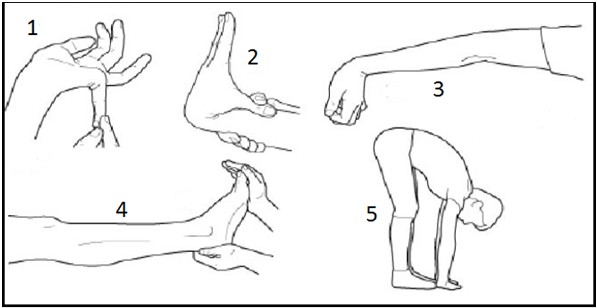This post follows on from part 1. Glossary note: TAB is an acronym for "temporarily able-bodied" or nondisabled.
I would hope that in 2015 this doesn't need to be said, but here it is anyway: the majority of disabled people cannot function the way a nondisabled person can. This doesn't mean we're not capable. What it means is that the TAB people around us need to take a long, hard look at how they define capability, and how they define reasonable adjustment. I can't masquerade as a nondisabled person. I can only walk very short distances without my stick, on the days where I can walk at all. I can't always focus. I can't disguise my wincing, or the sharp intake of breath when I shift slightly in my seat and something dislocates. And what's more, I shouldn't have to. Pain is a part of the human experience, and acknowledging it benefits everyone, not just people with disabilities.
Whoever came up with the phrase "differently abled", while almost certainly well meaning, missed the mark. For the most part, we're not differently abled at all - there are just obvious barriers to us doing the same things in more or less the same ways as an able-bodied/neurotypical person. And as often as not, that barrier exists in the mind of the assessor.
"That person is using a wheelchair, and therefore they must not be able to walk at all."
"That person cannot hear me talking, and they are therefore unsuited to a working environment in which lots of meetings take place."
"This person is visibly disabled, and therefore they must not be able to properly perform the task I'm asking them to do."
"This person has a learning disability, and therefore they will never understand what I'm trying to tell them."
Some variation on one of these phrases will surely have crossed everyone's mind at some time or another, to the point where many of those who have disabilities have come to say them about ourselves. For a nondisabled person, the ultimate response that results from this kind of thinking will be one of horror or pity.
In my last post, I mentioned that I was in the process of acquiring a wheelchair. I have now been using my wheelchair for a week, and the way people respond to me has noticeably changed. Horror, pity, suspicion. The people who won't meet my eye because they can't bear to look at this young person using a mobility aid. The undoubtedly well-meant but somewhat infantilising offers of help. The woman who, on seeing me stand up and push my wheelchair up a ramp I was finding too steep to propel myself on, aggressively confronted me whilst an entire busload of people sat in silence. The people who talk over my head and address my partner or friend instead of me.
Horror and pity reduce a disabled person to an object; a two-dimensional thing with no agency and no value above what's imposed from outside. These emotions run counter to a normal, healthy grieving process, both for the disabled person experiencing it and for those around them who may also be grieving. Pity is not compassion or empathy. There is nothing constructive in it. It is a defence mechanism - a means by which the observer can distance themselves from the object of their concern, rather than engage with the person and what they are feeling. Horror needs no explanation - it is, as we know, following the instinct to recoil from something perceived as strange and frightening. People do not like to gaze for long into a mirror of possibilities that include ours.
When these are the reactions we encounter the majority of the time, we begin to predict. When the incident on the bus happened, my first instinct was that I should avoid leaving the house until I am capable of manually propelling my wheelchair well enough that I can adequately perform disability in public. 98% of wheelchair users can walk a little way, but enough of us have encountered this kind of aggressive questioning that we have learned, over time, that we must conform to others' models of disability in order to be allowed to get on. If we encounter pity enough of the time, we will expect to encounter it constantly, and we will come to conclude that we are pitiable figures. If we encounter horror enough of the time, we will come to conclude that we are monsters.
You will not look into our mirrors, but yours are forced upon us every hour of every day. And so, we grieve, not just for ourselves, but for the images we must project in order to be considered worthy. We mourn those discrepancies, and we resent the need to hide our grief simply so that others will think us more useful and valuable. When the mirror you show us displays a sad creature capable of recreating a mere shadow of the human experience, that is what we are afraid we will become.
And that's why horror and pity are no use to us. We can't eat them or use them for shelter. They are not a currency that's accepted in exchange for goods and services, no matter what the government's propaganda machine would have you believe. They hold us back. We are already complete human beings, and we should not have to grieve for your opinion as well as our health.
Equality is not giving everyone the same tools to achieve an end: it is giving everyone the means with which to attain the same result. If people were to put aside their horror and their pity for long enough, and make the effort to see life through a disabled person's lens - which, in practice, means believing what they say and acknowledging the validity of their thoughts, feelings and experiences - the grieving process would be less painful and end its first cycles sooner.

